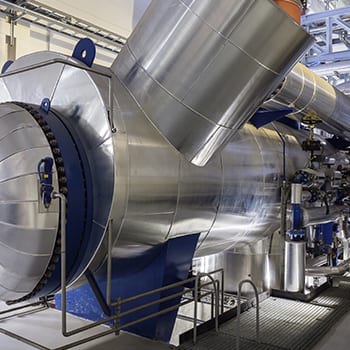Boiler Maintenance Tasks for Safety & Efficiency
Why Boiler Maintenance Matters
Boilers play a vital role in providing heat and hot water for both residential and commercial buildings. However, they are complex machines that require consistent care to operate at peak efficiency. Boiler maintenance not only extends the lifespan of your system but also ensures safety, minimizes energy costs, and reduces the risk of unexpected breakdowns.
Daily Boiler Maintenance Checks
- Monitor Water Pressure and Temperature: Inspect your boiler’s gauges every day to confirm that both pressure and temperature are within the recommended range. Abnormal readings can indicate leaks or other issues.
- Look for Leaks or Damage: Visually inspect the unit and surrounding areas for drips, rust, or signs of wear. Addressing minor problems early prevents major repairs later.
- Listen for Unusual Noises: Clunking, rattling, or whistling sounds may signal problems like air in the system or a failing component.
Weekly Boiler Maintenance Tasks
- Clean the Air Filter: A dirty filter can strain your system and reduce efficiency. Remove dust and debris regularly to keep airflow unobstructed.
- Check the Combustion Chamber: Examine for soot or debris buildup that might hinder performance or signal a burner malfunction.
- Inspect Flame Sensor and Igniter: Ensure these components are clean and positioned correctly to maintain proper combustion and ignition.
Monthly Boiler Maintenance Routines
- Test Safety Valves and Controls: Pressure-relief valves and other safety devices must function correctly to prevent dangerous pressure buildups.
- Flush the Boiler: Over time, sediment accumulates inside the unit, decreasing efficiency and raising the risk of corrosion. Flushing removes these deposits.
- Check Water pH Levels: Imbalanced pH can lead to corrosion or scale. Adjust chemicals or water treatment products as needed to maintain optimal levels.
Annual Boiler Maintenance & Professional Inspection
- Schedule a Professional Tune-Up: While daily and weekly tasks can be performed by homeowners or facility staff, a qualified technician should inspect the boiler at least once a year. They will thoroughly clean internal components, confirm correct burner operation, and address any hidden issues.
- Assess Overall System Health: A professional inspection can identify worn parts, potential leaks, or other concerns before they become expensive repairs.
Additional Tips for Optimized Boiler Maintenance
- Use a Water Softener: Hard water accelerates scale buildup, reducing efficiency. A water softener helps maintain proper water quality.
- Chemical Inhibitors: Products designed to minimize corrosion and scale can significantly improve system performance.
- Clean Boiler Room: Keep the area free of debris and clutter. A clean environment helps prevent dust from entering the system and makes daily checks easier.
- Start Each Heating Season Right: Schedule a preseason checkup to ensure everything is in order before temperatures drop.
Benefits of Regular Boiler Maintenance
- Reduced Breakdowns: Early detection of problems prevents costly repairs and inconvenient downtime.
- Better Efficiency: A well-maintained boiler uses less energy, lowering your utility bills.
- Longer Lifespan: Routine care can add years to your boiler’s service life, delaying the need for replacement.
- Enhanced Safety: Identifying and fixing leaks, faulty valves, or pressure issues helps you avoid hazardous situations.
When to Call a Professional
If you’re uncomfortable performing certain tasks—such as adjusting pH levels, flushing the system, or inspecting burners—hire a certified heating technician. They possess the training and tools to keep your boiler operating safely and efficiently while ensuring compliance with local regulations.
Bottom Line: Consistent boiler maintenance—from daily checks to annual inspections—keeps your system running smoothly, prevents surprise breakdowns, and maintains a safe and comfortable environment. With the right balance of DIY tasks and professional services, you’ll enjoy reliable heat and hot water while minimizing costs and headaches for years to come.

